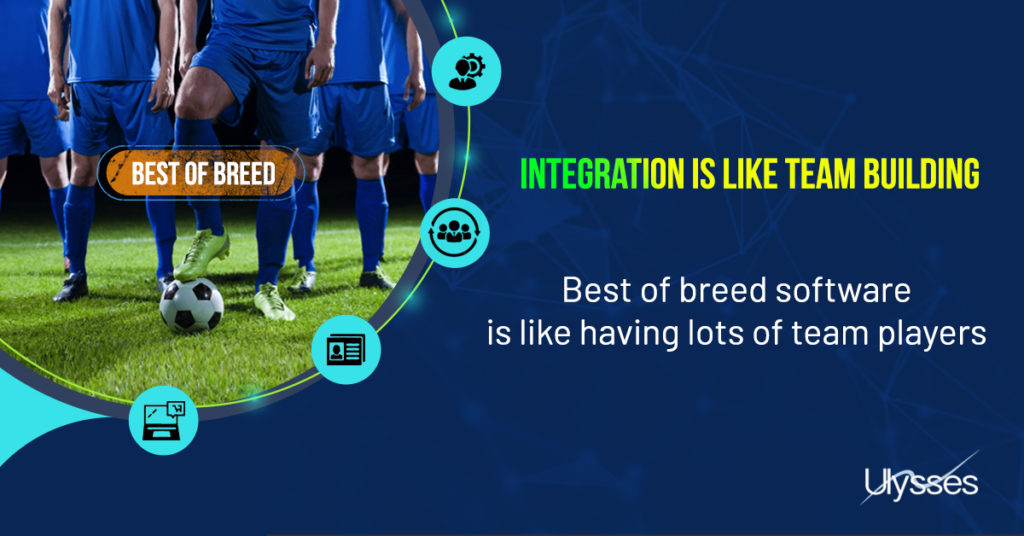
What is the problem today with integration? 1
Perhaps the same problem as the focus on team work.
Before computing became an essential productivity tool, the benefits from constant improvement were not obvious.
For example, bringing all your information together for a purchasing decision and not having to access e-mails and applications separately.
Similarly, before football reached today’s level of sophistication, having one star player in a provincial team was good enough.
But to compete in world class football, team management is not an afterthought.
Software is similar, in that productivity can increase tremendously going forward.
We can think of the software vendors, who can increase the productivity of an enterprise, as being the star players.
Can you expect one vendor to increase your productivity to the highest level possible in every module? If not who will make sure you can access the highest productivity in every module?
People that care about productivity and know the marine business like the backs of their hands.
People that care about how your systems integrate with the highest productivity tools.
